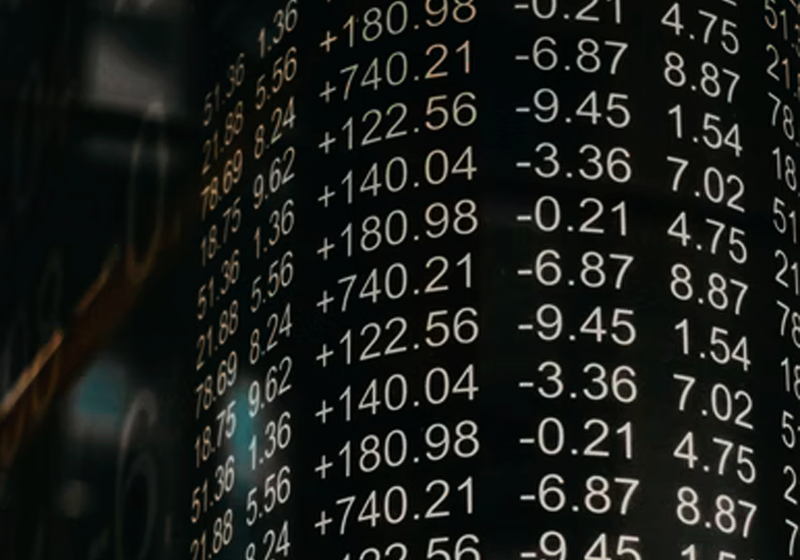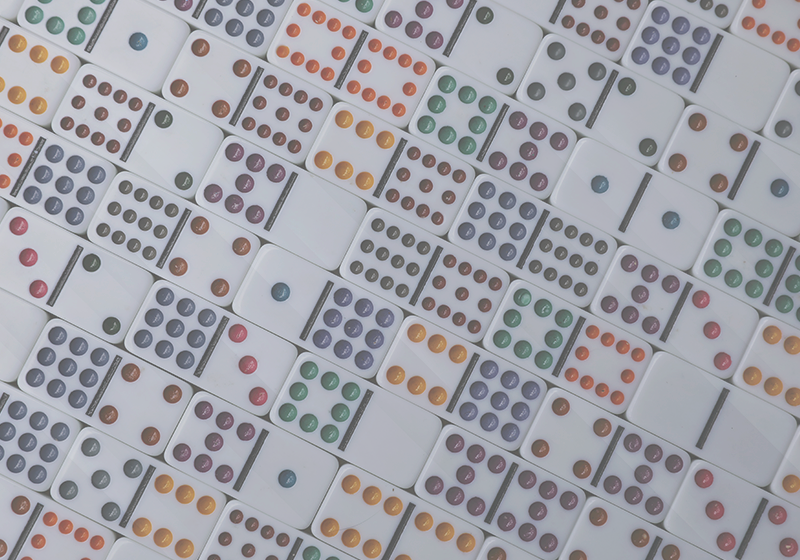 Título: On random walks that build their own domain
Título: On random walks that build their own domain
Palestrante: Rodrigo Ribeiro (University of Colorado Boulder)
Data: 21/02/2022
Horário: 15:00h
Local: Transmissão online
Confira AQUI o link para a transmissão.
Resumo: In this talk, we will discuss the dichotomy recurrence/transience and ballisticity in the context of a class of random walks that build their own domain. At each step of the walker on its domain, a random number of new vertices is attached to the walker's position. We will present distributional conditions over this random number of new vertices for which we observe distinct sharp behavior on the walker. We also discuss structural results, that is, when this process is seen as a random graph model, the walker is capable of generating trees whose degree distribution approaches a power-law.
All the talks are held in English.
More complete information about the seminars will be available at HERE.
Sincerely,
Organizers: Giulio Iacobelli and Maria Eulalia Vares
 Título: On random processes with variable length
Título: On random processes with variable length
Palestrante: Alex Dias Ramos (UFPE)
Data: 07/02/2022
Horário: 15hrs
Local: Transmissão online
Confira AQUI o link para a transmissão.
Resumo: In most of the theoretical research about random systems with local interaction, the supposition that the set of particles, also called the space, does not change during the evolution is widely adopted. This supposition, which we call constant length, is not the only possible one. We will consider another approximation, called variable length. In this talk, for a class of one-dimensional particle processes with discrete-time, where its components are located in the integers set, we shall present a general theory and analyze (in a theoretical and numerical way) some random processes, studied by me with co-authors, which were motivated by this new paradigm.
All the talks are held in English.
More complete information about the seminars will be available at HERE.
Organizers: Giulio Iacobelli and Maria Eulalia Vares
 Título: Time averages of a metastable system of spiking neurons
Título: Time averages of a metastable system of spiking neurons
Palestrante: Morgan André (IME-USP)
Data: 13/12/2021
Horário: 15hrs
Local: Transmissão online
Confira AQUI o link para a transmissão.
Resumo: We study a stochastic system of spiking neurons in which the spikes of the neurons are represented by a family of interacting point processes on the positive real line. The model depends on a parameter gamma, representing the intensity of the natural leakage of the neurons. This model has already been proven to exhibit several interesting behaviors. Firstly it undergoes phase transition with respect to the parameter gamma. Moreover the time of extinction of finite versions of the system have been proven to be asymptotically memory-less for small gamma, a characteristic property of metastable systems. Here we show that this last result actually holds in the whole subcritical region and that previous to extinction the finite versions of the system are in a regime which in some sense resemble stationarity. This is the second characteristic property of metastable dynamics. The main idea is to use a bypass through the theory of "Interacting particles systems".
All the talks are held in English.
The videos of the online seminars are available:
For the second semester, a few days after each meeting the video should be available HERE.
 Título: Probabilistic cellular automata with Bernoulli invariant measures
Título: Probabilistic cellular automata with Bernoulli invariant measures
Palestrante: Siamak Taati (American University of Beirut)
Data: 24/01/2022
Horário: 15hrs
Local: Transmissão online
Confira AQUI o link para a transmissão.
Resumo: I will sketch a proof of the following result: If a positive-rate probabilistic cellular automaton has a Bernoulli invariant measure, then it is ergodic, meaning that its distribution starting from any configuration converges (exponentially fast) to that Bernoulli measure. The same result holds for (continuous-time) interacting particle systems. The proof is based on the entropy method, but unlike the usual entropy arguments, does not require the shift-invariance of the starting measure. This result has a practical implication concerning the inevitability of heat dissipation in computers which I will briefly discuss. This is a joint work with Irène Marcovici.
All the talks are held in English.
More complete information about the seminars will be available at HERE.
Those who do not wish to receive our next announcements may simply send an email to <eulalia@im.ufrj.br>; asking to be removed from the list.
Thanks for circulating this information.
Sincerely,
Organizers: Giulio Iacobelli and Maria Eulalia Vares
 Título: Interacting cluster point process model for epidermal nerve fibers (ENF)
Título: Interacting cluster point process model for epidermal nerve fibers (ENF)
Palestrante: Nancy Lopes Garcia (IME-Unicamp)
Data: 06/12/2021
Horário: 15hrs
Local: Transmissão online
Confira AQUI o link para a transmissão.
Resumo: We propose an interacting cluster model for the spatial distribution of epidermal nerve fibers (ENF). The model consists of a spatial process of parent points modeling the base points of nerve fiber bundles. To each base point there is an offspring point process of fibers end points associated. The parent process is, possibly, inhibited by fiber endings that belong to different base bundles. The fibers themselves have random length and spatial orientation. We consider a non-orphan process where we can connect each offspring to a parent. Cluster processes with repulsion are rare in the literature. In this work we propose a model based on birth and death processes for which we can approximate the likelihood function. Coefficient estimation can be performed under the Bayesian paradigm via Markov chain Monte Carlo methods.
Joint work with Peter Guttorp and Guilherme Ludwig.
All the talks are held in English.
The videos of the online seminars are available:
For the second semester, a few days after each meeting the video should be available HERE.
